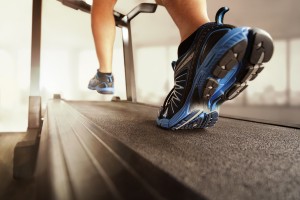Urinary tract infections (UTIs) can be quite difficult to tolerate and sometimes even to treat. By incorporating various lifestyle changes, one can decrease their chances of getting a urinary tract infection. By incorporating these various changes when you do have a urinary tract infection, one may also be able to better recover from a urinary tract infection. One of the main areas of focus for preventing a urinary tract infection revolves around decreasing exposure to contaminants or possible “infectious agents”. This is not a comprehensive list of how to completely approach a urinary tract infection, and so, if you are experiencing a UTI, please seek medical advice, such as that from a naturopathic doctor.
Lifestyles changes that can help prevent urinary tract infections:
- Wipe from front to back – wiping from back to front can cause transmission of known UTI causing bacteria from anus to the urethra.
- Avoid using harsh soaps to clean the urethral and vaginal area.
- Ensure underwear is only worn for one day before washing.
- Determine if you have allergies to soaps, clothing detergent, etc.; and avoid the irritating substance.
- Consider sources of re-infection such as partners, sex toys, and underwear.
- Make sure to wash sex toys thoroughly after every use.
- Ensure fully emptying of bladder when urinating.
- Urinate before and after sexual intercourse.
- Ensure adequate hydration (i.e. Drink plenty of water).
- Avoid perfumed toilet paper, soaps, etc.
- Wear cotton underwear – this can help to better ventilate the urethral area and decrease chances of a UTI.
Diet changes that can help prevent urinary tract infections
- Eat a diet rich in whole foods with little or no sugar or refined carbohydrates – Sugar and refined carbohydrates can feed certain bacteria and help them to thrive.
- Avoid known food allergies/sensitivities. If you are curious if you have any, you can contact myself and book an appointment to better determine this.
- Avoid caffeine and alcohol – these substances can dehydrate and make an individual more prone to UTIs.
What to avoid in order to prevent urinary tract infections:
- Wearing thong underwear – similar to wiping from back to front, a thong can act as a “super highway” for bacteria.
- Wearing underwear to bed.
- Wearing panty-liners.
- Holding urine in bladder for extended periods of time.
What to do if you have or suspect a urinary tract infection:
- In the event of a urinary tract infection, it is important to follow the suggestions mentioned above in addition to the following:
- Seek medical care – some urinary tract infections in certain individuals may require an antibiotic or further assessment.
- Drink sugar – free cranberry juice – Cranberry can help to remove the bacteria from the ductal wall and help to eliminate the infection more quickly.
- Drink plenty of water – drinking water can help to flush out the infection more quickly.
- Watch for signs of fever or complications – a fever and back pain may be a sign that the urinary tract infection is getting worse. If this happens, do not delay in seeking emergent medical care.
- Increase your parsley intake – parsley has some anti-bacterial properties that make it effective at fighting off and killing bacteria that cause urinary tract infections.
- Increase your blueberry intake – similar to cranberries, blueberries have several properties in them that help to remove bacteria from the ductal wall and eliminate them from the body.
Have you benefited from reading this blog? Know someone that would benefit as well? Share, Like, Comment, or Tweet this article, and let me know what you think.
Some of the information provided above may not be appropriate for everyone, please consult with your doctor before trying any of the above. If you are interested in Naturopathic Medicine and wanting a different approach to your health care needs, contact Dr. Elisha Cook ND by calling 519-537-7058 and book your appointment today!


